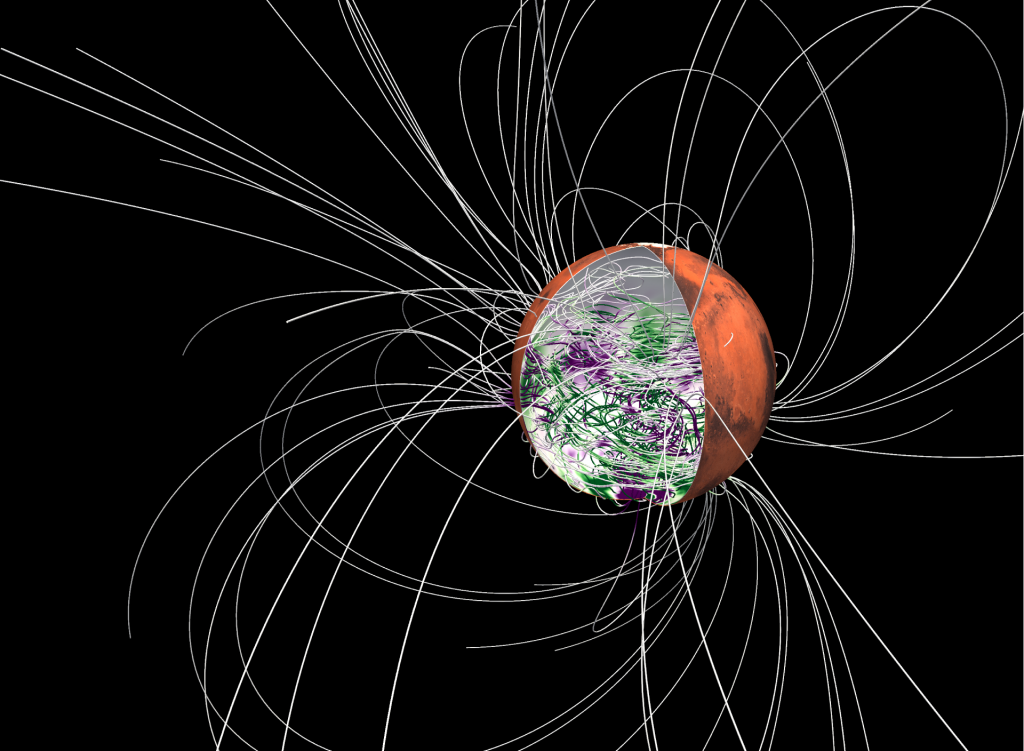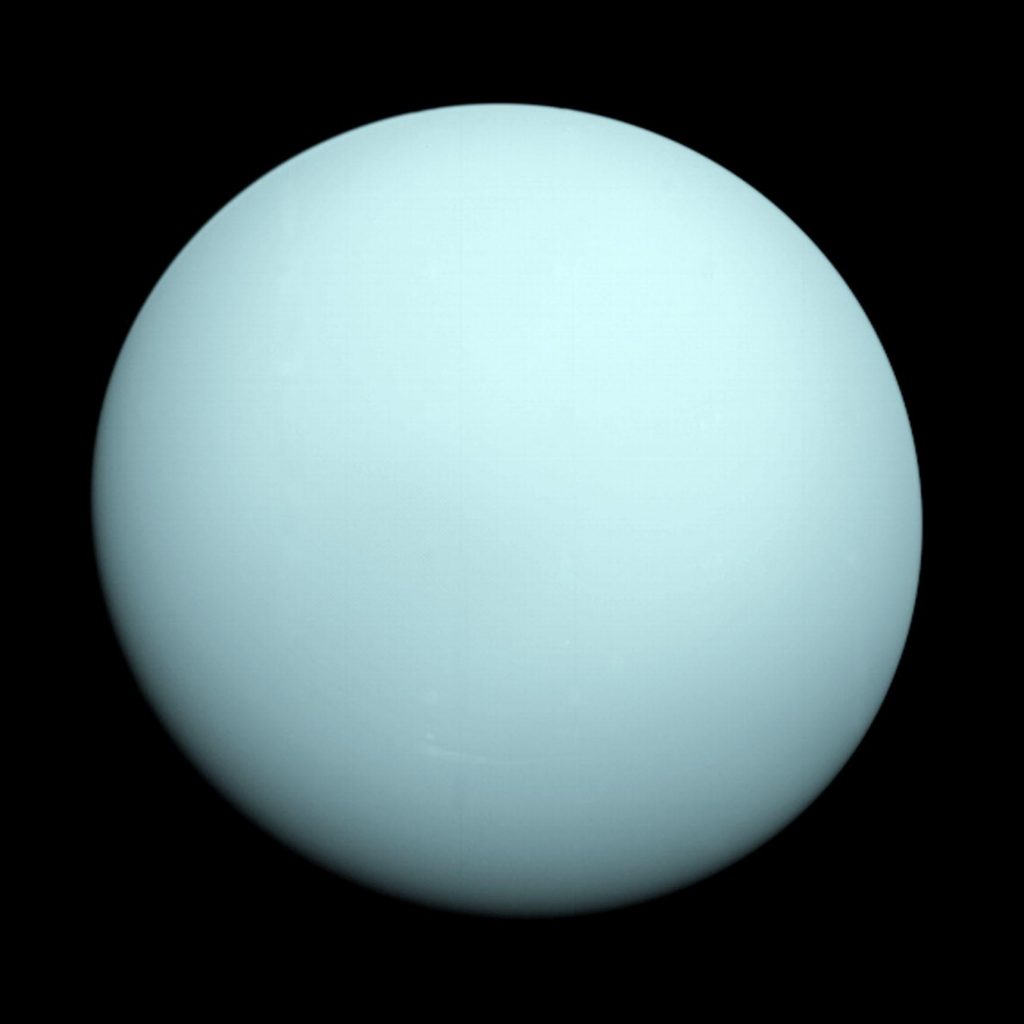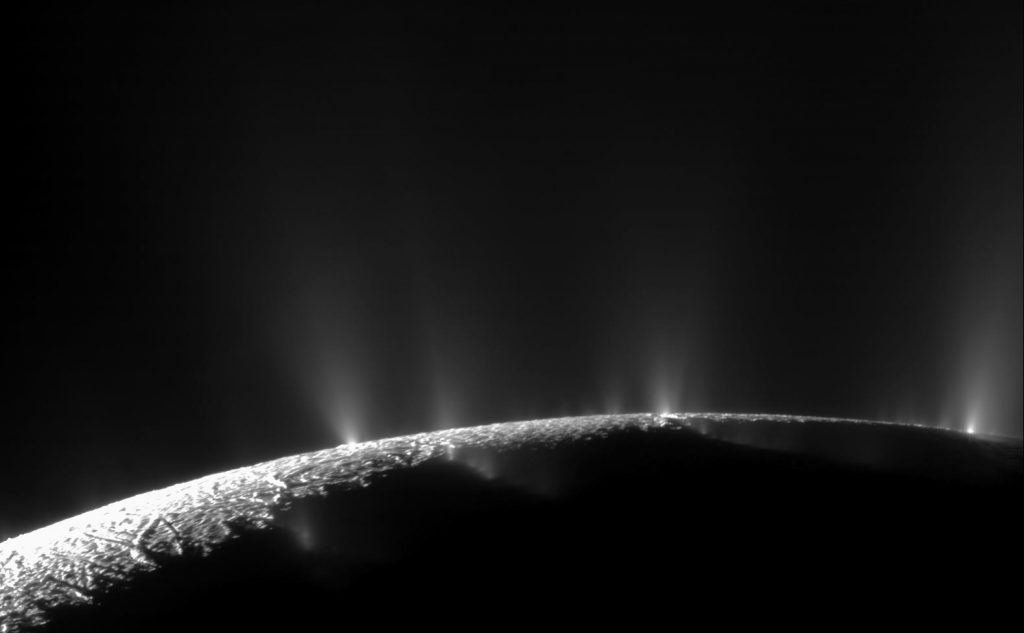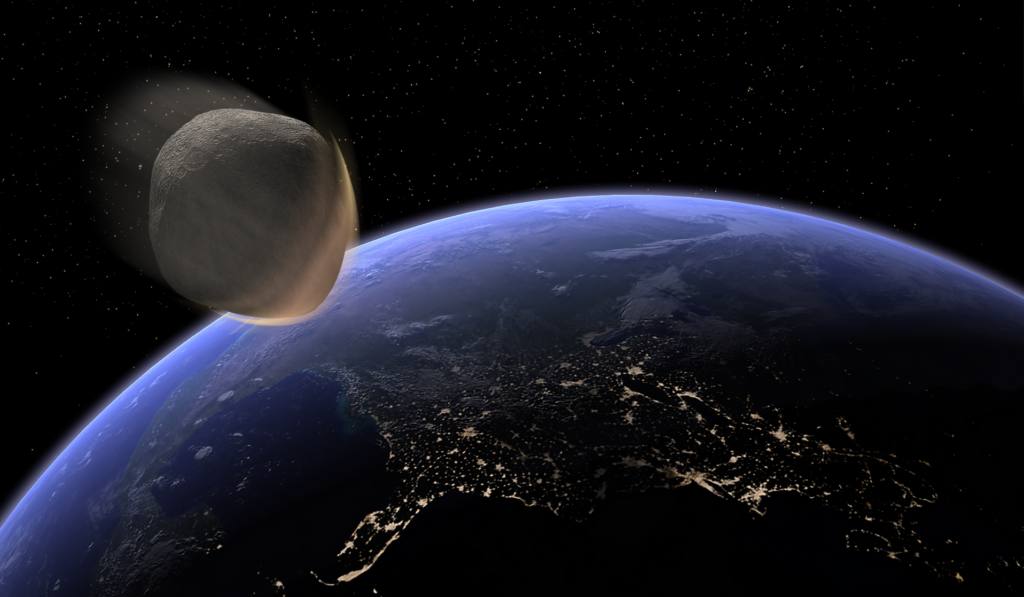Like Earth, Mars once had a strong magnetic field that shielded its thick atmosphere from the solar wind. But now only the magnetic imprint remains. What’s long baffled scientists, though, is why this imprint appears most strongly in the southern half of the Red Planet. A new study from the University of Texas Institute for… Continue Reading Molten Martian Core Could Explain Red Planet’s Magnetic Quirks
Uranus’s Swaying Moons will Help Spacecraft Seek Out Hidden Oceans
When NASA’s Voyager 2 flew by Uranus in 1986, it captured grainy photographs of large ice-covered moons. Now nearly 40 years later, NASA plans to send another spacecraft to Uranus, this time equipped to see if those icy moons are hiding liquid water oceans. The mission is still in an early planning stage. But researchers… Continue Reading Uranus’s Swaying Moons will Help Spacecraft Seek Out Hidden Oceans
Study of Saturn’s Moon Adds to Evidence of Strong Ocean Currents on Enceladus
Beneath the frozen surface of Saturn’s icy moon Enceladus lies a vast ocean where, according to a new study, turbulent waters carry nutrients and minerals from hot hydrothermal vents to the icy surface. There, the particles are forced through cracks in the ice and ejected into space within great gassy plumes. Such particles were detected… Continue Reading Study of Saturn’s Moon Adds to Evidence of Strong Ocean Currents on Enceladus
Meet the Mars Student Researcher Who Wants to Rewrite Fluid Dynamics
Mars was once a wet world, like Earth, but did water hang around long enough on its surface to sustain life? That’s the question on the mind of Eric Hiatt, a graduate student at UT Austin’s Jackson School of Geosciences, who’s supported by UT’s Center for Planetary Systems Habitability to study the history of water… Continue Reading Meet the Mars Student Researcher Who Wants to Rewrite Fluid Dynamics
Mystery crater potentially caused by relative of dinosaur-killing asteroid
Originally published in The Conversation. The ocean floor is famously less explored than the surface of Mars. And when our team of scientists recently mapped the seabed, and ancient sediments beneath, we discovered what looks like an asteroid impact crater. Continue Reading Mystery crater potentially caused by relative of dinosaur-killing asteroid





